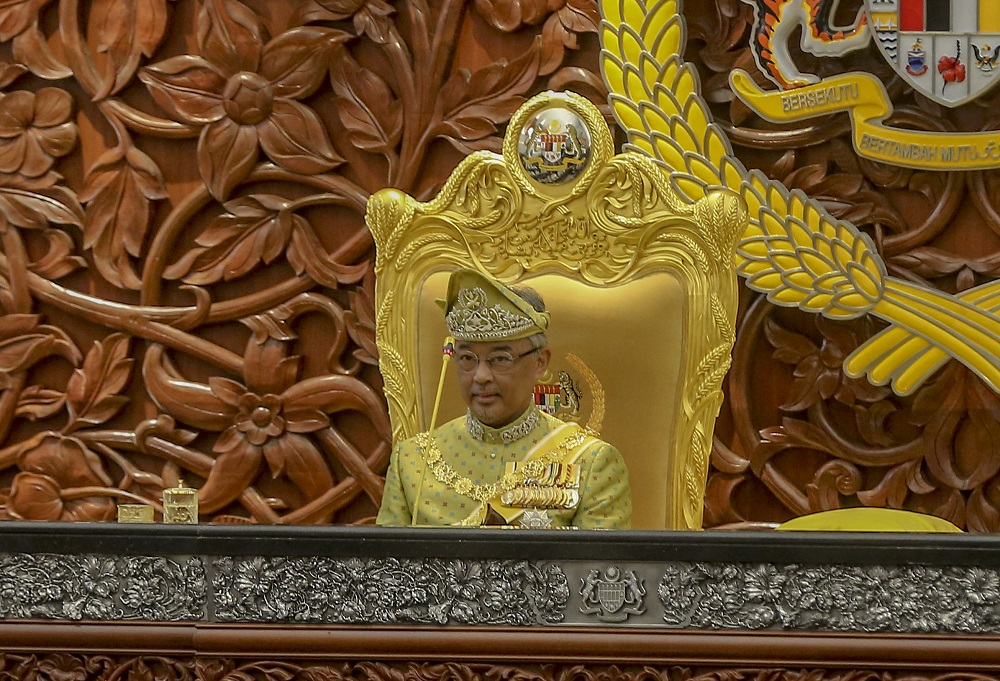KUALA LUMPUR, March 26 — Amid growing controversy over the Rome Statute, several Opposition lawmakers today asked the government to clarify if the Yang Di-Pertuan Agong had given his royal assent prior to Malaysia’s signing of the international treaty.
They were dissatisfied with Foreign Minister Datuk Saifuddin Abdullah’s assertion in the Dewan Rakyat earlier that Malaysia need not be anxious as no leader will commit any of the four heinous crimes listed under the Rome Statute for which he or she would be tried in a world court.
“Did the Yang di-Pertuan Agong assent to the Rome Statute being signed?” Kepala Batas MP Datuk Seri Reezal Merican Naina Merican who was leading the arguments on the matter, asked Saifuddin.
Replying to Reezal, Saifuddin said “the question does not arise.”
The Barisan Nasional (BN) lawmaker also asked if the government would bring the matter for tabling in Parliament, similar to previous international agreements such as when Malaysia was to be a member of the now defunct Trans-Pacific Partnership Agreement.
The Rome Statute is an international treaty adopted by 120 countries on July 17, 1998 that established the International Criminal Court (ICC) that prosecutes individuals who commit genocide, crimes against humanity, war crimes and the crime of aggression.
It is a “court of last resort” as the ICC takes action when a government refuses or is unable to prosecute an individual on any of those four crimes.
Pengerang MP Datuk Seri Azalina Othman Said then pressed Saifuddin to explain the royalty’s immunity if one of the four crimes were indeed committed.
Saifuddin, however, called on the lawmakers to pray that such untoward incident never happens, adding that if it did, it is still the country’s own judiciary which would have jurisdiction on the matter.
Earlier, Saifuddin said the government also “has full confidence that no local leaders will commit genocide, crimes against humanity, war crimes and the crime of aggression, which is criminalised under the said treaty.”
He also said the ICC was a “court of last resort”, if a nation is unable, or unwilling to take action on the said four offences.
He said that he had also already met the Yang di-Pertuan Agong , Al-Sultan Abdullah Ri’ayatuddin Al-Mustafa Billah Shah twice to discuss the issue and had also already provided an explanation to the Agong on March 10.
On March 13, Saifuddin said in a statement that the Agong has decreed him to dispel any misinformation regarding the International Criminal Court (ICC) Statute, including the claim that the King will be exposed to the prosecution.
The minister also said he has informed the Agong that the Constitution does not need to be amended to accede to the statute, and would only require substantive legal and procedural amendments.
“The Agong will not be personally affected after Malaysia becomes a signatory to the ICC,” he added.
Saifuddin also explained that ratifying the statute does not require the agreement of the Conference of Rulers, since it does not fall under the nine issues stipulated under Articles 159(5) and 38(4) of the Constitution.
Based on Article 80(1) of the Constitution, read together with Article 39 and Article 74, any ratification of international instruments involving foreign affairs falls under the executive powers of Putrajaya.
Despite that, Saifuddin said the Cabinet will still inform the Agong of the decision in respect of the principles of Constitutional Monarchy.



















